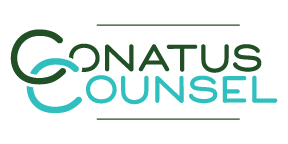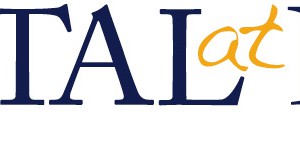Forrest P. Merithew, Attorney at Law, practices insurance coverage and defense, for businesses and individuals, in Asheville and Western North Carolina. If you have been notified of a potential claim against you or your business, he may be able to protect your rights and assets by tendering your insurance policy on your behalf and for your defense. He can also review, analyze and interpret your policy or business and risks, to determine what coverage you have and/or need. Insurance can take a number different forms, each one being specific for what it covers and protects, whether it be liability or goods.
Whether you believe in it or not, insurance is vital in our modern society. Insurance is primarily a type of accident protection for the insured. This does not mean that it may just come into play when there are actual “accidents”, but it is there to protect the insured’s items, products, and potential legal liability when the unexpected occurs. The primary types of insurance, for both businesses and individuals, are property, automobile, general liability, and malpractice. There is also bailee insurance for businesses that take temporary possession of another’s property for service purposes and employment practices insurance for potential employment discrimination claim defense.
This article is not exhaustive on all the potential kinds of insurance available or numerous types of insurance and coverage within each of these categories, but is meant to provide a general understanding of the different kinds of insurance an individual and/or business should look into securing to protect their interests.
Liability insurance provides coverage and defense for the insured from the risks of liabilities imposed by claims and lawsuits. Property and auto insurance can provide liability insurance to defend against the claims of others, as well as replacement insurance if something insured is damaged or stolen (otherwise known as “package protection”).
When a claim is made, the insurance carrier generally has the duty to reimburse and/or defend the insured. To put the insurer on notice of the claim, it may be important to “tender” the policy, with which an expierenced attorney can assist. Insurers’ major duties, depending on the coverage and state, are: 1) the duty to defend, 2) the duty to indemnify (in some states), and 3) the duty to settle claims. It is also important to realize that some of these liabilities and issues can be addressed in contracts or liability waivers, and that a contract may have certain requirements of the insured (minimums, additional insureds, etc.) in construction and other business arrangements.
Insurance coverage has evolved over the years and it may be important for insureds to know that there can be two kinds of policies – those will always protect you for any claims emanating out of the policy period and those that will only protect you for claims made only during the actual policy period (known as “claims-made”). Generally, claims-made policies are cheaper because of the limited coverage span. There are also policies with deductibles, or self-insured retention rates, which require the insured to pay a certain amount before the insurer’s responsibilities and duties begin. These policies are generally cheaper because of that initial cost to the insured.
It is important to make sure that your insurance agent has been made aware of the type of insurance and risks you have, as an insurance policy will only cover what it explicitly says it will. When securing insurance, it is recommended that you send a follow-up correspondence, in writing, thanking the agent who assisted you for the opportunity to provide you coverage, confirming what specific coverage or provisions you requested and need, and that the policy they sold you does provide those types of coverage. You should be intimately aware of the kind of insurance coverage you have secured, what the language of the policy actually says and protects, and what the insured’s obligations are under such policy with respect to reporting and business or personal operations and maintenance. It may be recommended that you have legal counsel review the policy and provide you with an interpretation and explanation of those protections, rights, and obligations.
General Liability:
Most businesses should carry a general liability policy. Many of the traditional business risks are often covered together under such a policy. General liability insurance policies typically cover a company, and its employees and owners, against claims involving bodily injuries and property damage resulting from that business’s products, services, or operations. General liability policy coverage may extend to advertising liabilities, for example advertising that potentially violates a copyright, if such coverage is outlined in the policy.
General liability insurance may be the only policy a business needs, but it won’t protect against claims alleging professional errors or negligence, faulty employment practices, or bailment situations. General liability policies may also not actually protect against damage to things being worked upon, but simply accidents occurring with other objects or individuals in the normal stream of work.
It is important you discuss all such liabilities and concerns with your agent to secure all the types of insurance your business may need. It may also be important to consult with a knowledgeable attorney during the development of your business or when you are performing liability analysis, as I have come across a number of instances where insurance agents did not know, or at least inform, clients of the different types of coverage they sincerely needed.
Homeowner and Property:
Homeowners insurance provides financial protection in the event that the insured home or its contents are damaged. It also provides liability protection if claims are made against you, a family member, or family pet for the injuries to others or damage to their property. Generally Homeowner/Property insurance is required for mortgages.
Homeowner/Property policies range from a basic policy, to those that will provide a much broader range of protection. Typically, floods and earthquakes are excluded and must be specifically requested and added, if such policies are available in your area. For those perils or known risks that are not covered, there may be supplemental insurance you can purchase and add on to your policy.
In the unfortunate scenario where something caused the loss of your home and/or personal contents, having an accurate home inventory of possessions can make property insurance settlement claims a lot more efficient. It is recommended that homeowners keep receipts, descriptions, photos or video of the items they own to increase the probability of coverage for all items. Anytime you can have a record of items subject to insurance, it will assist you or your attorney in tendering your insurance policy and collecting the proper amount for your loss.
Bailment or Bailee:
Bailment is a legal situation wherein someone provides temporary ownership of a piece of property another. This type of situation usually arises with businesses that are taking temporary possession and, in that, responsibility for property or equipment owned by others, such as auto body shops, pawn shops, dry cleaners, and parking lot owners. Many bailees incorrectly assume that their standard general or commercial liability coverage would protect that property; however, most of those policies, including property insurance, specifically exclude coverage for the property of others. Bailee or Bailment insurance can cover the loss or damage to any property of another under the care, custody, or control of a bailee. And, generally, the coverage includes property that is on, or the bailee is transporting to and from, the bailee’s premises, as well as natural events or “acts of god” outside of the bailee’s control.
Further, in most states contract law does not apply to bailment situations. Therefore, bailees cannot usually contract away such liability with a waiver or other similar language in a service or bailment contract. As an alternative to Bailee insurance, one can obtain coverage as part of a comprehensive property policy that includes a “property of others” clause.
Errors and Omissions, Also Known As Malpractice or Professional Liability:
Malpractice insurance, otherwise known in the industry as “Errors and Omissions” (E&O), covers negligence of professionals in white collar industries, such as lawyers, accountants, engineers, and doctors. It may also be called professional liability insurance. Such insurance is highly recommended for these types of professions, and general liability insurance does not provide any such protections. In fact, in some situations it may make more sense for a business to have malpractice insurance rather than general liability, but most companies that need E&O will want both. For example if you meet clients at your location, you will want general liability against any claims of injuries on your property or for damages to your rental commercial property while you still will also want coverage for the work you perform.
Automobile:
An auto insurance policy typically covers and defends you and your spouse, relatives who live in your home and other licensed drivers to whom you give permission to drive your car. An auto policy generally provides is “package protection” (as discussed above), which means there is coverage for bodily injury and property damage liability, as well as physical damage to your vehicle. This damage can include both that caused by the collision and damage cause by things “other than collision”, such as forces of nature or acts of god.
Automobile insurance usually comes with a deductible, which must be paid completely by the insured. Either before the insurance policy is triggered and picks up the remaining costs or damages or if there is one large bill for repair work, the insurance company may pay the whole thing and send a bill to the insured for the deductible or pay everything but the deductible.
Employment Practices Liability:
An employer may want employment practices liability insurance (“EPLI”) for coverage against claims of unlawful employment practices by current or ex-employees. Most companies have insurance for comprehensive general liability insurance, but these policies do not typically cover employment claims, such as sexual harassment, age discrimination, wrongful termination, and defamation.
An employer that has a significant number of employees and/or a human resources department, is probably already aware of employment practices insurance, but a growing company should also become familiar with such risks, coverage, and policies.
Summary:
As discussed above it is important that you secure insurance for all potential risks, claims, or losses you or your business may face. To do so you need to clearly confer you risks, work, possessions, and concerns to your insurance agent while discussing policy selection and purchasing.
Following the policy negotiations/purchasing it is recommended that you memorialize those conversations and your understanding of the policy (or policies) recommended or purchased with that agent in follow-up written correspondence. This will further protect you in case a claim is made down the road, which you come to discover is not covered by your policy when you thought it was. Unfortunately, that is a situation I have seen too often when business or other defense litigation clients come to me.
Civil and commercial litigation can be an extremely expensive endeavor, and potential damages for personal injuries, wrongful death, and other litigation claims can be exorbitant amounts, all of which would be difficult for most people or businesses to simply pay out of pocket.
Forrest P. Merithew, Attorney at Law, has worked in business development, insurance coverage and defense, and civil and commercial litigation for over five years. This experience has provided him with the ability to consult with business clients about their insurance needs, policies, and the interpretation of the coverage thereunder, but also to tender policies to provide defense coverage when needed or pursue claims against an insured defendant’s policy to secure recovery of damages and payment.


